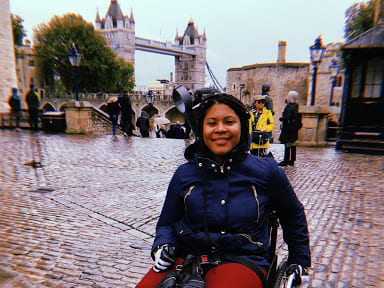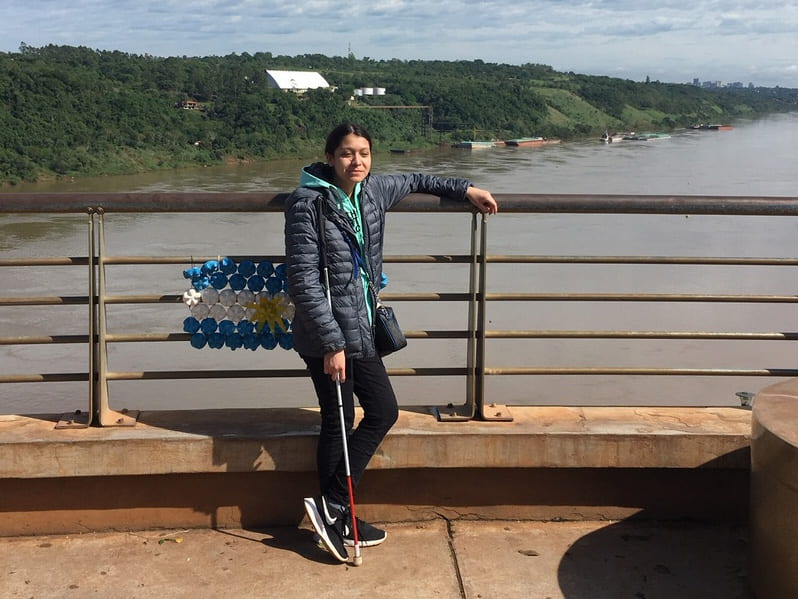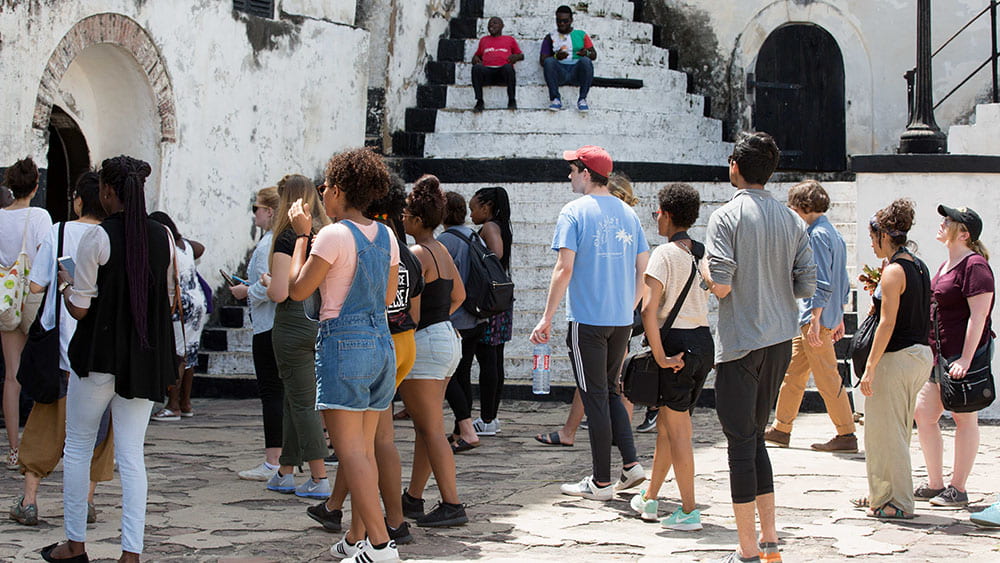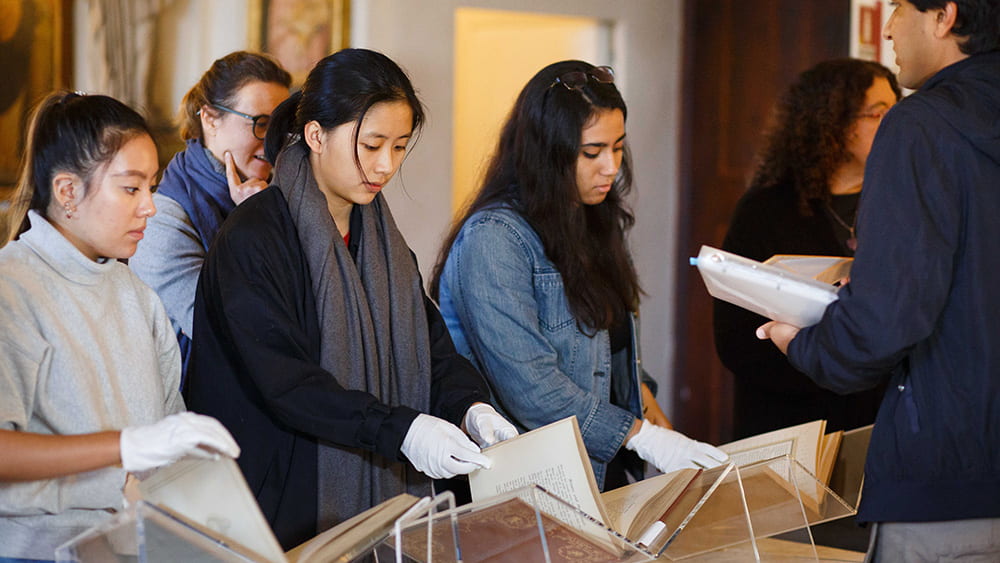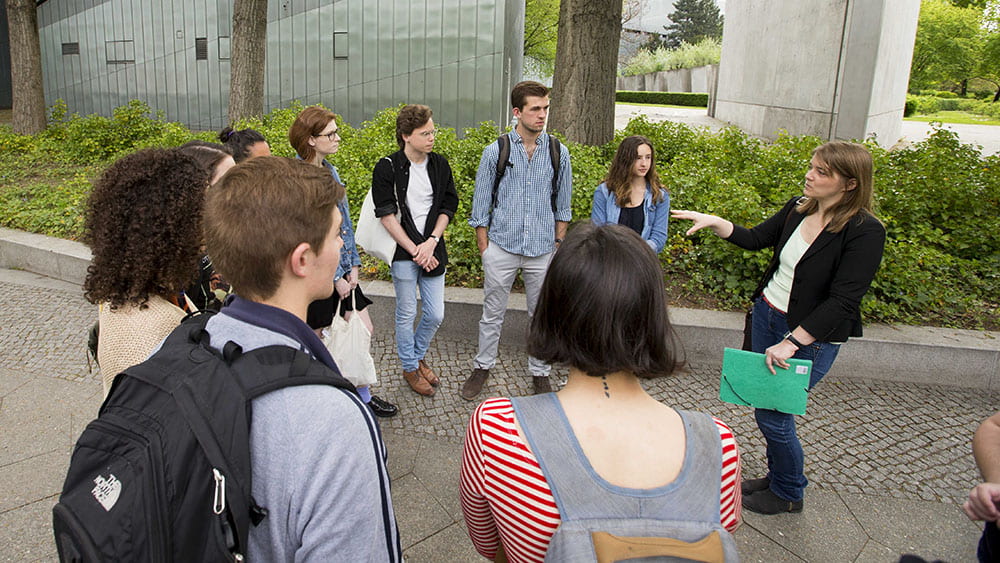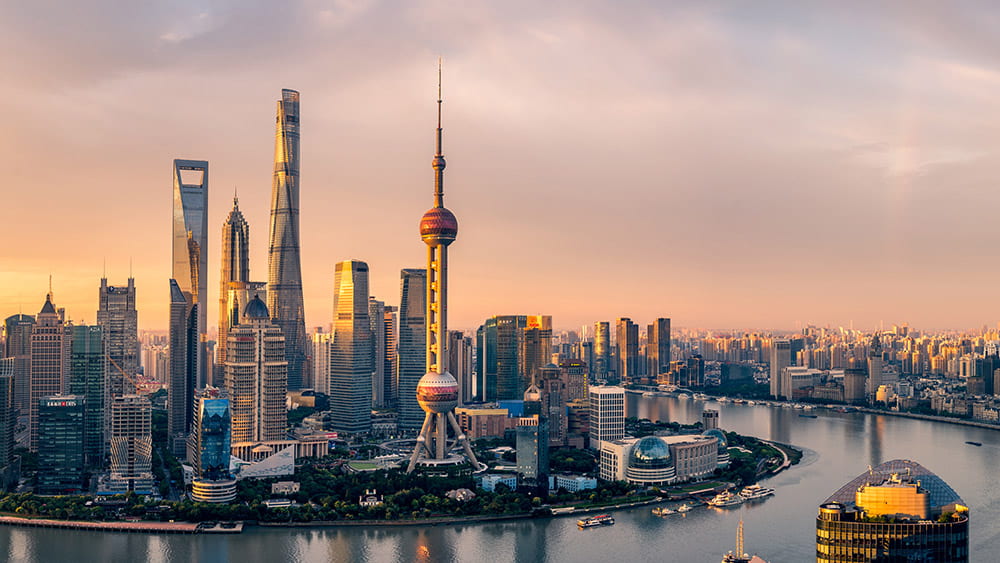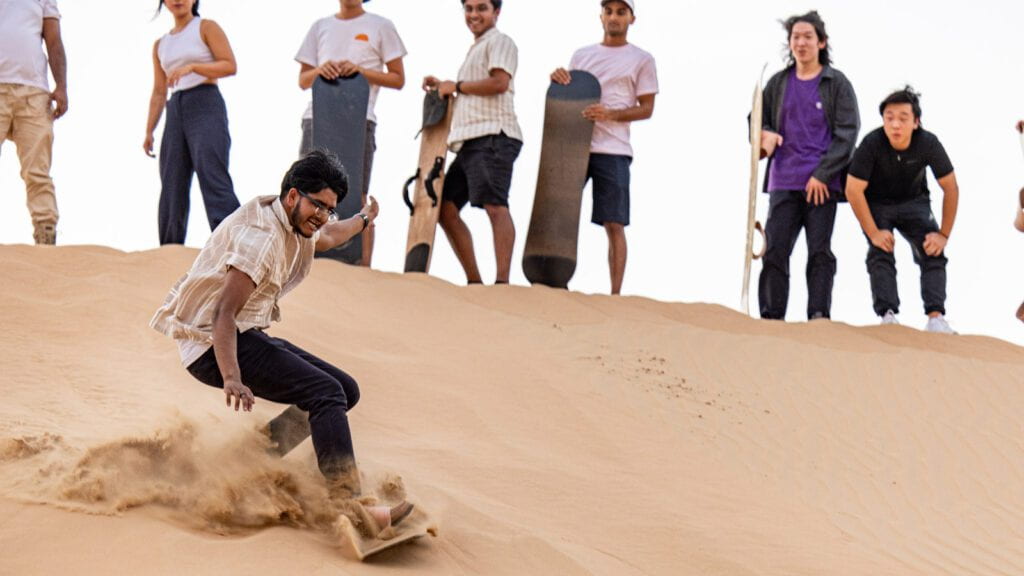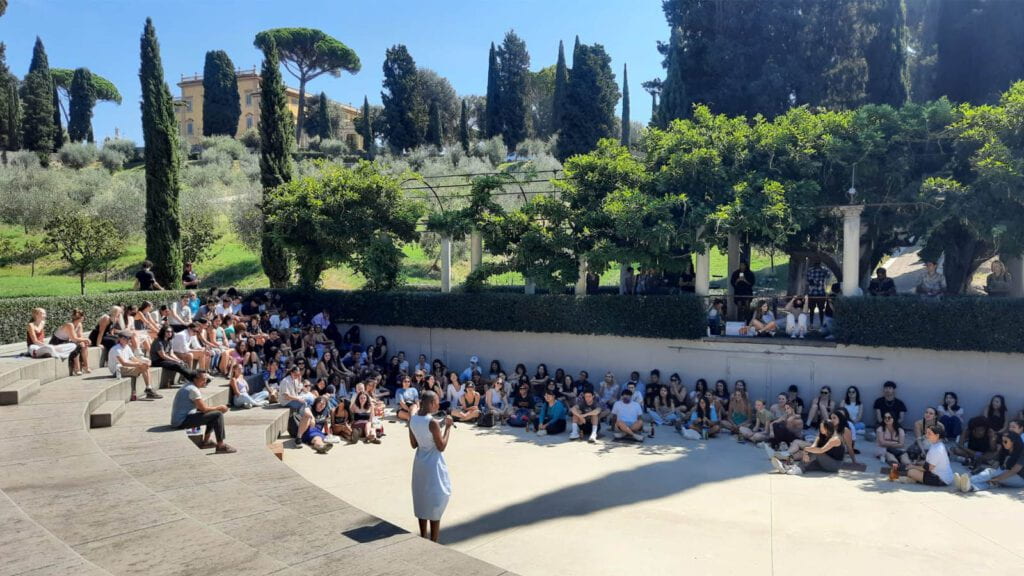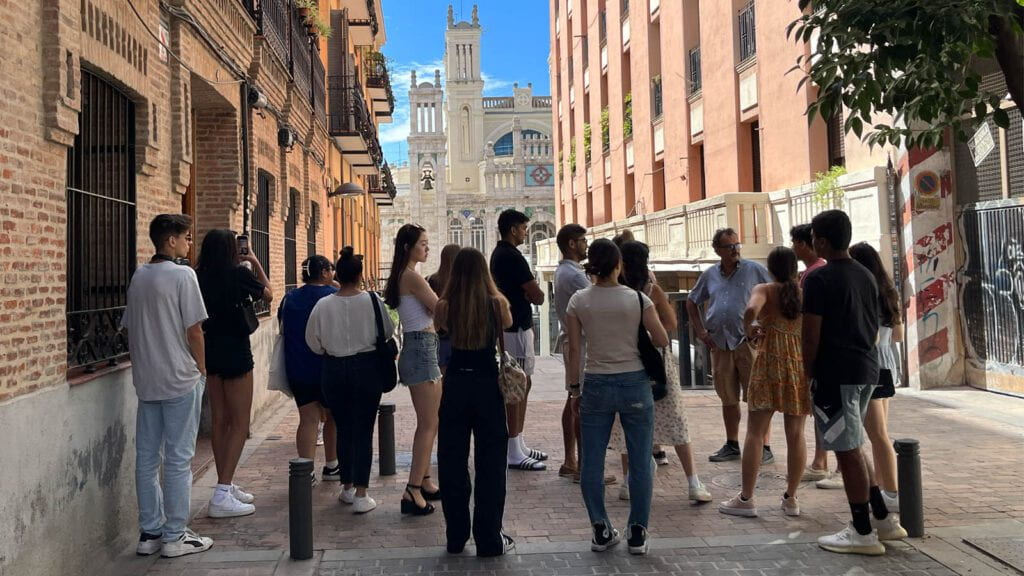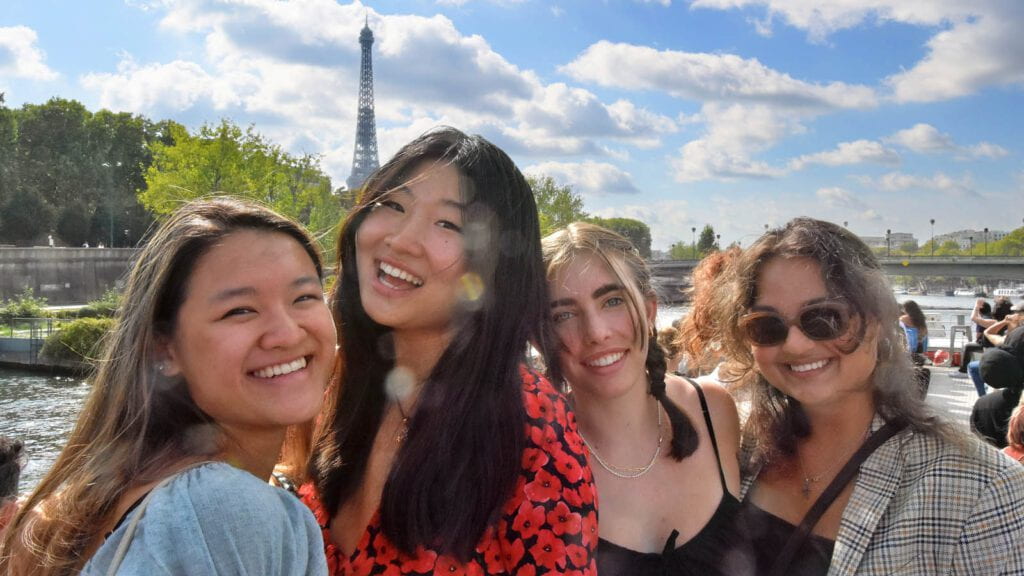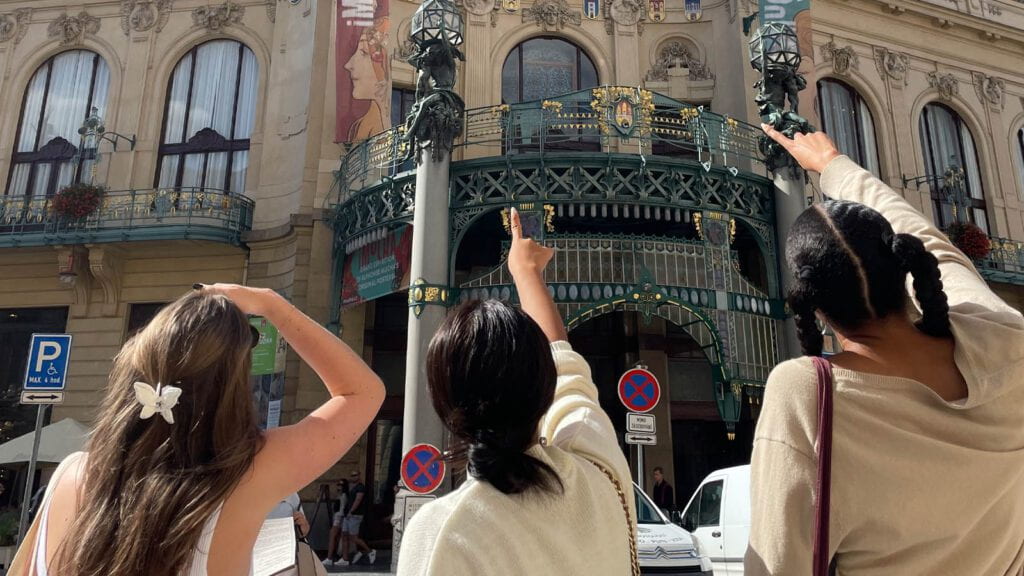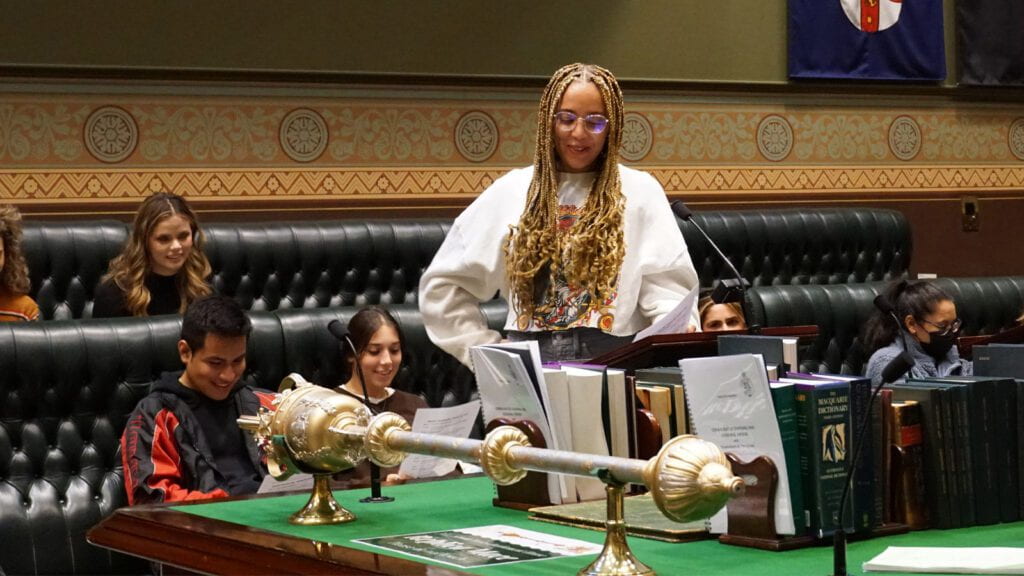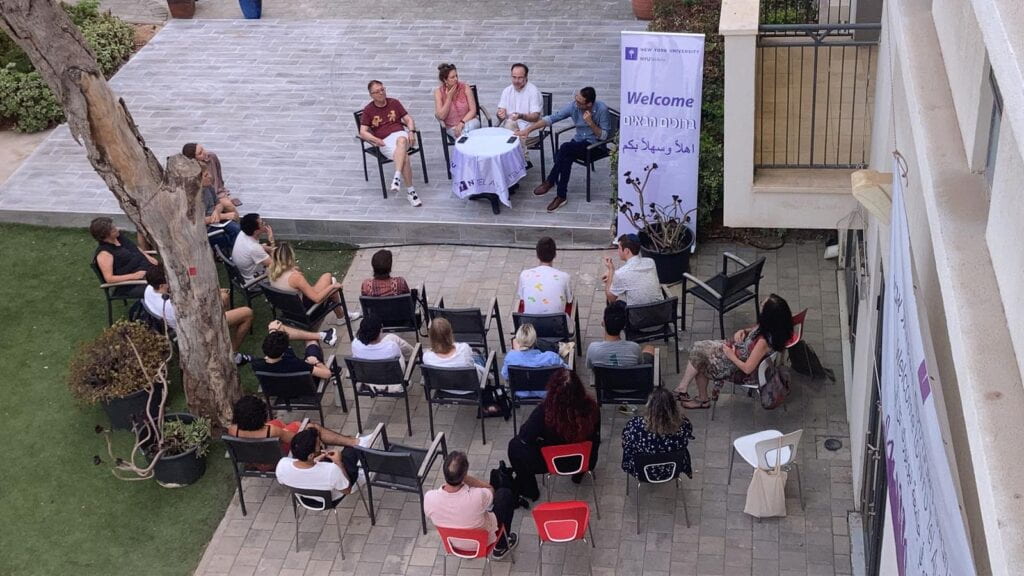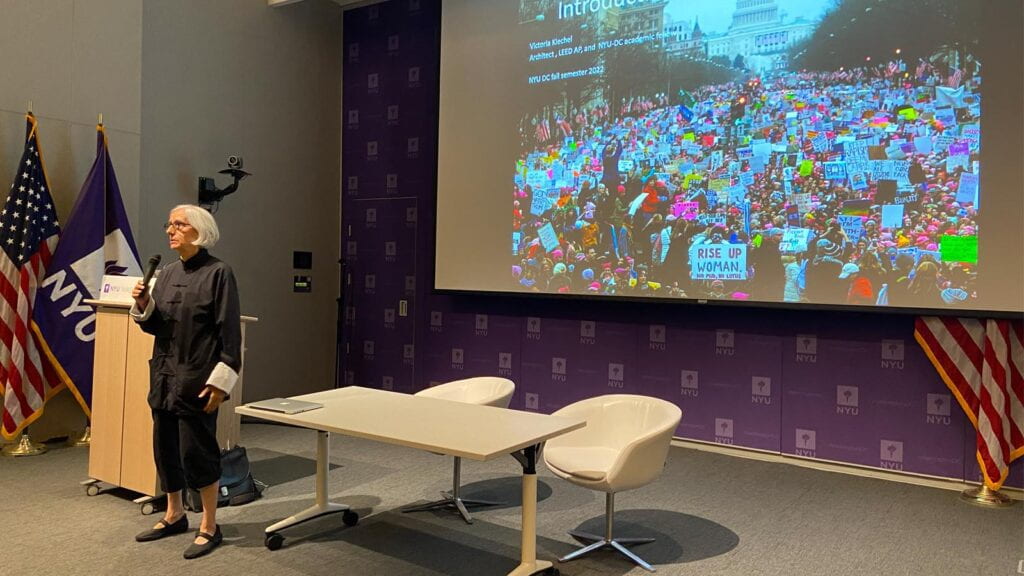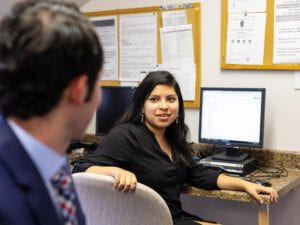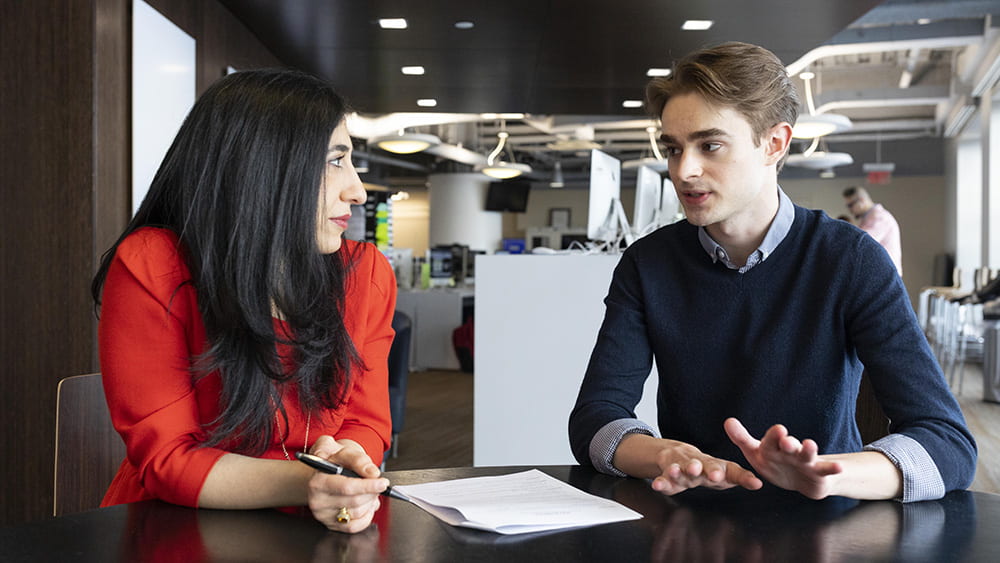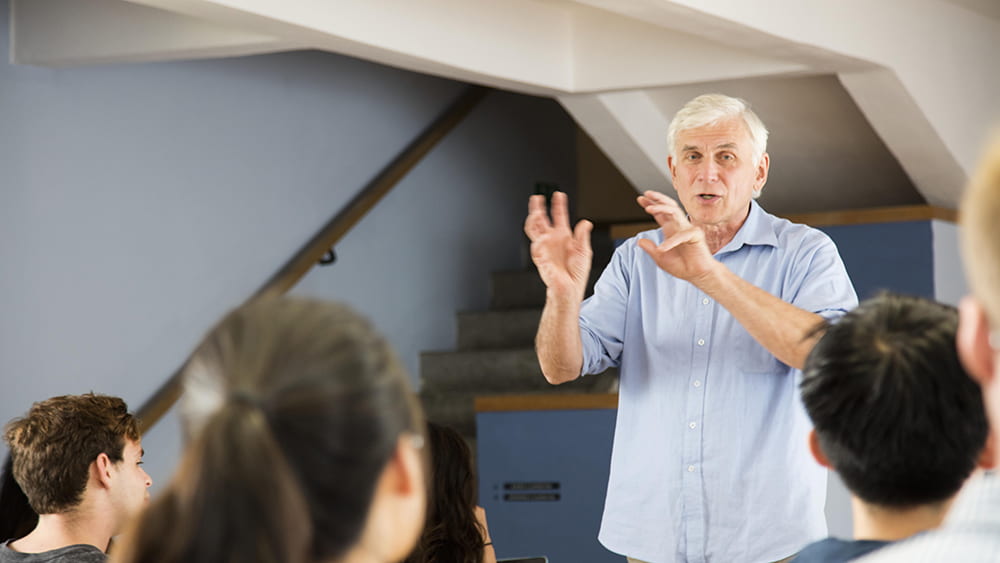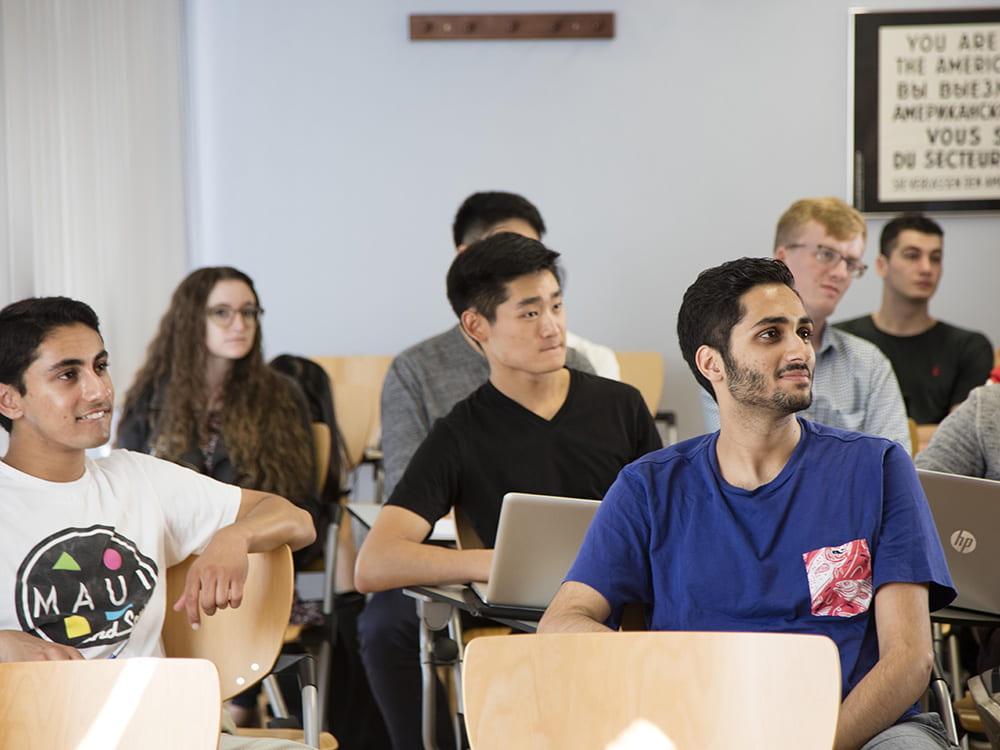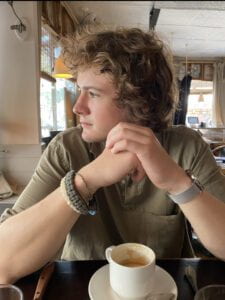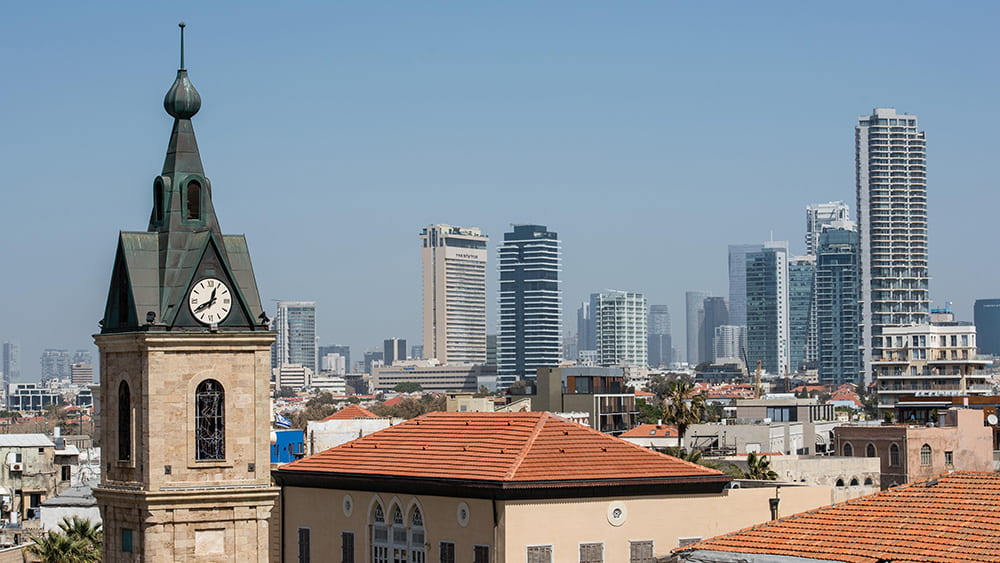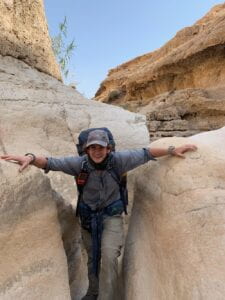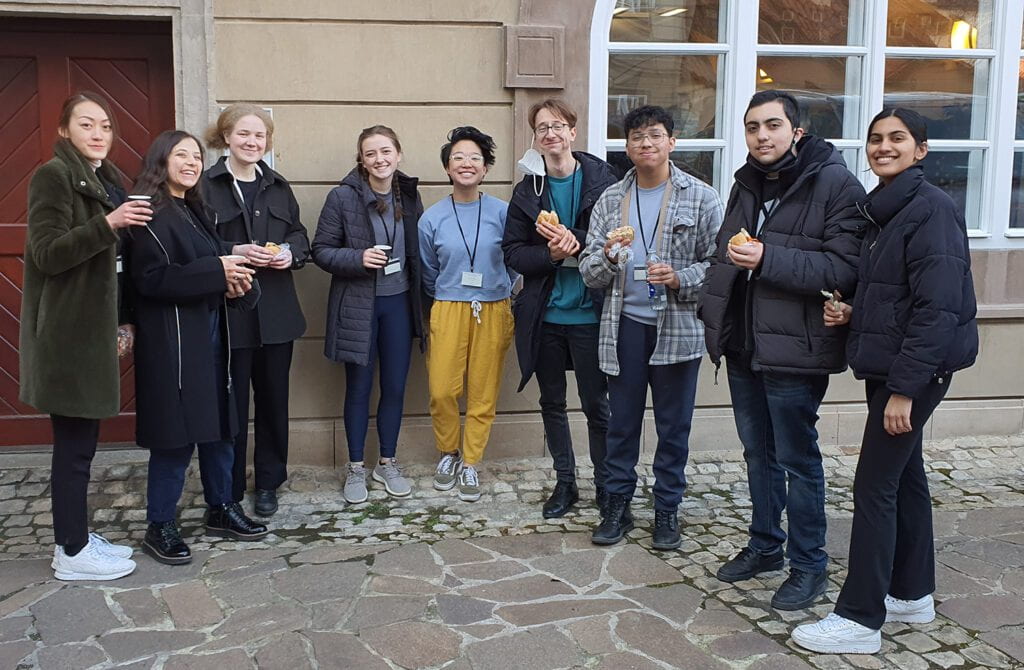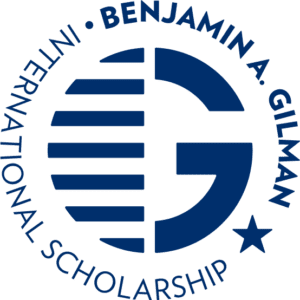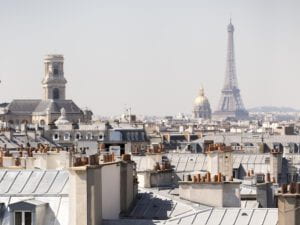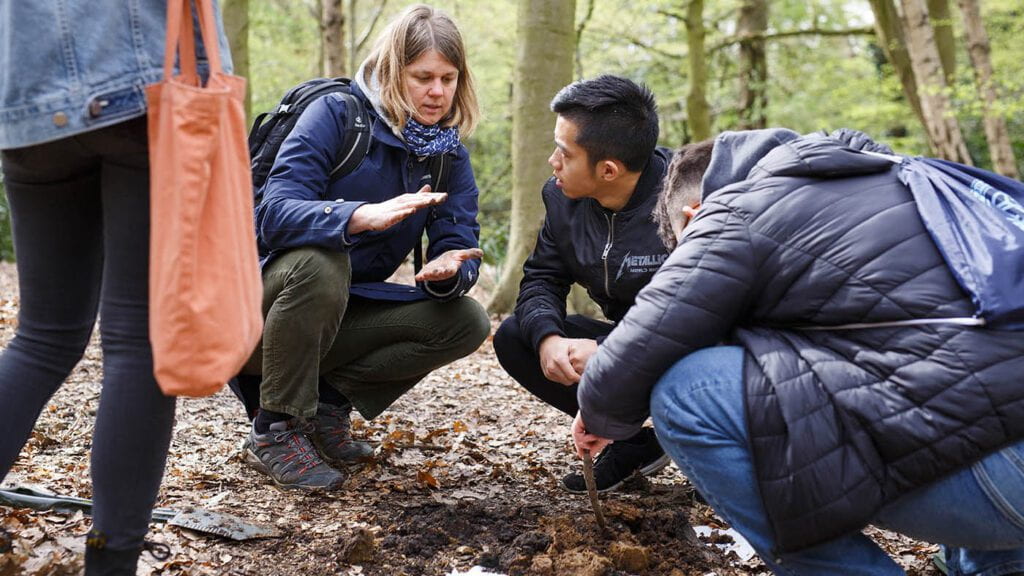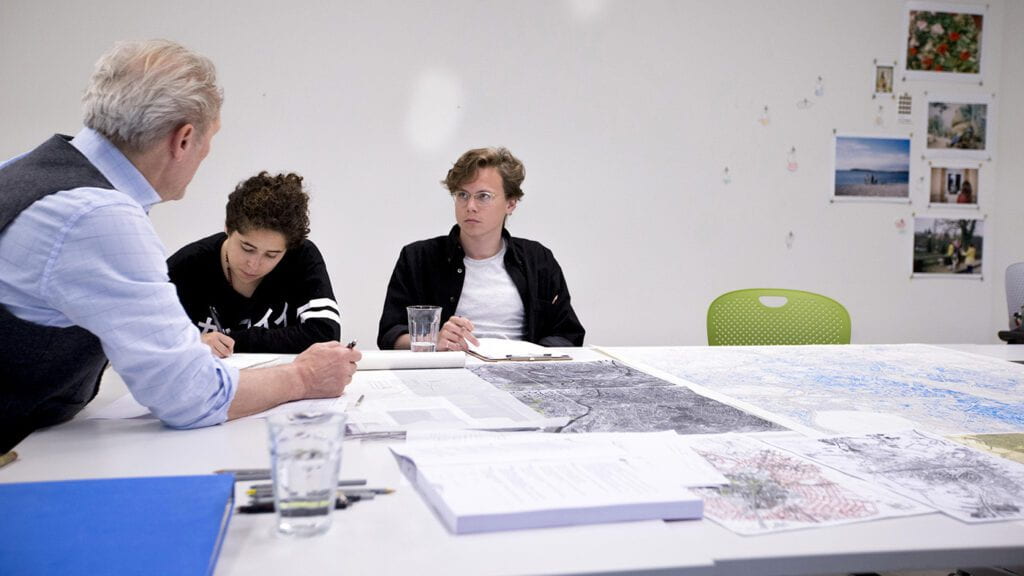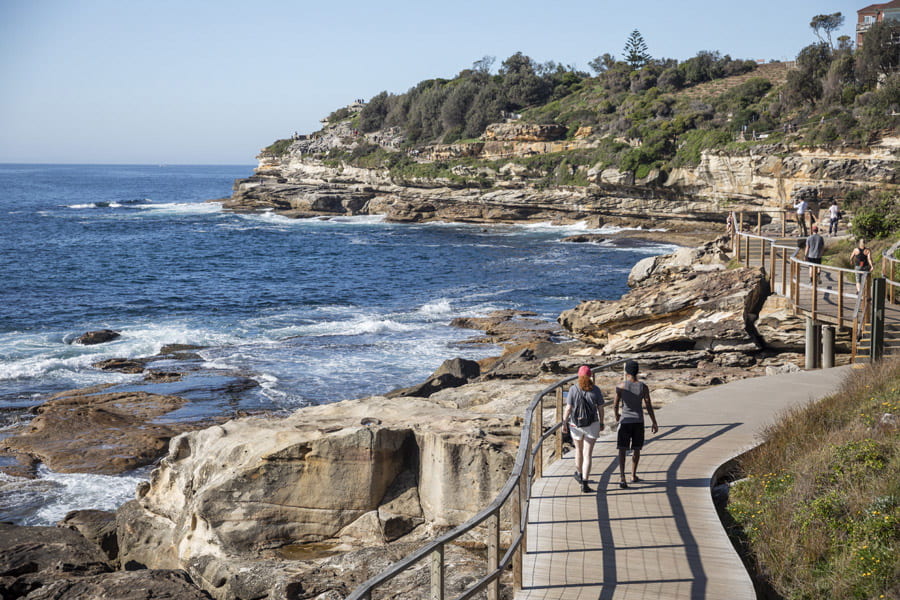Deciding to study in a new place and culture can be intimidating. And even though there are many resources available to NYU students while abroad, sometimes the most meaningful support and advocacy comes from their peers. The NYU Global Equity Fellowship is designed to do just that, by having students empower their classmates to advance diversity, equity, and inclusion while studying away.
Johileny Meran, College of Arts and Science (CAS) Class of 2019, was NYU London’s inaugural Global Equity Fellow. As a student who is also a manual wheelchair user, she took her time researching accessibility in London and seeking insight from other students who had studied abroad there. A Global Public Health and Sociology major with a minor in Disabilities Studies, Johileny ultimately decided to study abroad during her senior year.
Despite her thorough preparation, Johileny experienced unforeseen challenges as she adjusted. “I struggled my first few weeks in London because most local businesses had a step or two in front, and I thought I couldn’t go in,” says Johileny. It was hard for her to think she couldn’t go out with friends or browse in shops and experience the city, especially after all of her careful preparation. “Then I learned that many places have a doorbell by their main entrances for you to request assistance. They bring out a temporary ramp to put over the step,” she adds. “London is a very old city with old buildings, so they provide accessibility differently, but it does exist.”
While abroad as a Global Equity Fellow, Johileny developed the NYU London Access Culture Guide. “It’s a booklet with general information about studying in London as a student with a disability. It is very much centered on my perspective as a student with a physical disability who uses a manual wheelchair,” explains Johileny, “but I made it with the intention that it would be a living document.” She compiled information on accessible transportation, how ramp culture functions in London, and how to travel to other cities and countries from London. She also conferred with International Relations major Emely Recinos, CAS Class of 2020, to include her input.
Emely, who is blind, saw NYU Buenos Aires as a great academic fit but wasn’t certain about navigating the city or the academic center itself. So she conducted her own research to determine what studying at NYU Buenos Aires would be like. “I looked into the culture of disability in Argentina to understand how people view it there,” she says. She also visited the Moses Center for Student Accessibility for resources and support. In turn, the Moses Center sent guidelines to NYU Buenos Aires, who then contacted relevant local resources. For example, they recruited a teacher in Buenos Aires who knew braille and had access to an embosser for braille printing to work with Emely on mobility instruction (that is, how to get around the city).
When planning for study away, both Johileny and Emely encourage students with disabilities to reach out to other students with disabilities who have studied abroad. “Talk to students about what it was like for them,” says Johileny. And most importantly? “Don’t get discouraged if you don’t find the information you want on the first try. And once you’re there, embrace it. There are a lot of ups and downs, and that’s completely normal.”
Repurposed with permission from NYU Global Notebook
